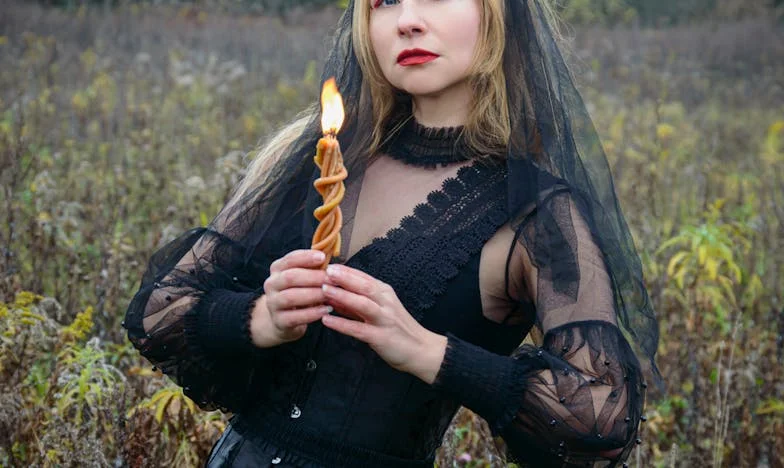Closer Than Blood: The Bittersweet Truth of My Life
“You never call me anymore. What, am I just a name in your phone now?” My mother’s voice crackled through the phone, sharp as ever, slicing through my already fragile composure. I was standing in the kitchen, hands shaking as I tried to stir the soup, my mind racing with a thousand retorts I’d never dare speak aloud.
It was always like this with her. She’d call when it suited her, usually when she needed something—or someone to blame. Growing up in a small town in Indiana, I learned early that my feelings were secondary to my mother’s moods. My name is Emily Parker, and for as long as I can remember, I’ve felt like a guest in my own family.
When I was nine, my mom forgot my birthday. She remembered the next day, bought me a slice of cake at the gas station, and told me to stop being so dramatic about it. “You know how busy I am, Emily. Don’t make a scene.” I learned not to expect much, and to keep my disappointments to myself.
My dad left when I was twelve. I overheard them fighting—my mother raising her voice so loud the neighbors probably heard, my dad begging her to care for me, to think of someone other than herself. When he was gone, I thought maybe she’d finally see me, just the two of us. But she just got quieter, more withdrawn, like I was the reason he’d left.
By the time I was seventeen, I was invisible. I spent most evenings at my best friend Jessica’s house, pretending her mom was mine, eating casseroles and laughing at sitcoms. Jessica’s mom would hug me goodbye, brush my hair out of my eyes, ask about my day. I’d walk back to my house, the porch light off, and realize what I was missing.
College was my escape. I got into a state school in Ohio—just far enough to feel free. I studied psychology, hoping to understand my mother, or maybe just myself. I met Adam sophomore year. He was everything I wasn’t—loud, funny, confident. He made me feel like I mattered. We married after graduation, against my mother’s advice. “You’re too young. You’ll regret it. People always disappoint you, Emily.”
Adam’s mom, Linda, hugged me the first time I met her. She made us pancakes, sat at the kitchen table, and asked me about my dreams, not just my major. She remembered my birthday, sent me texts when I was stressed, told me I was “the daughter she’d always wanted.”
I’d like to say it was easy, letting Linda in. But every time she showed me kindness, I felt guilty, like I was betraying the woman who’d given birth to me. My mom seemed to sense it too. She called less, grew even colder, until conversations were just awkward exchanges about the weather. When I told her I was pregnant, she didn’t congratulate me. She said, “Good luck. Hope the baby doesn’t ruin your life.”
After my daughter, Sophie, was born, Linda was at the hospital before visiting hours started. She brought flowers and a little pink blanket she’d knitted herself. My mother showed up two days later, complained about the parking, and left after ten minutes, saying she was tired. I watched her walk away, my heart a mess of hurt and resignation.
I remember one Thanksgiving, Sophie was three. My mother had canceled at the last minute (“I just can’t deal with the mess this year, Emily. You understand.”) Linda came over early, helped me cook, played dolls with Sophie on the carpet. After dinner, when the house was quiet, I started to cry. “I’m so sorry,” I whispered, “I don’t know why I can’t be enough for her.”
Linda took my hands, her eyes gentle. “You are enough, honey. Some people just can’t see what’s right in front of them. But I do.”
Adam was my rock, but even he grew tired of my mother’s coldness. “Why do you keep trying, Em?” he asked one night, frustration in his voice. “She doesn’t deserve to be in Sophie’s life if she can’t even try.”
But it’s not that simple, is it? She’s my mother. The one whose voice should’ve soothed me at night, whose arms should’ve been my first safe place. Every birthday, every big moment, a part of me still hoped she’d show up, apologize, say she loved me. She never did.
The last time we fought, she accused me of abandoning her. “You care more about Adam’s family than your own. You act like Linda’s your mother. What am I, chopped liver?”
I lost it. Years of hurt, finally spilling over. “You’re my mother in name only. Linda’s the one who’s actually been there for me.” My voice shook. She hung up. We haven’t spoken since.
It’s been three years. Sophie asks sometimes why Grandma Parker doesn’t visit. I tell her some people have trouble showing love, but that she’s lucky to have Grandma Linda. And she is. We all are.
Sometimes, in the quiet, I wonder if I should try again, reach out, mend the broken pieces. But then I think of Linda’s laughter, her warmth, the way she loves me without conditions. Maybe family isn’t always about blood. Maybe it’s about who chooses you, who stays, who loves you when it matters most.
Do you think forgiveness is possible, even when someone never tries to change? Or is it okay to walk away from the people who hurt us, even if they’re family?
